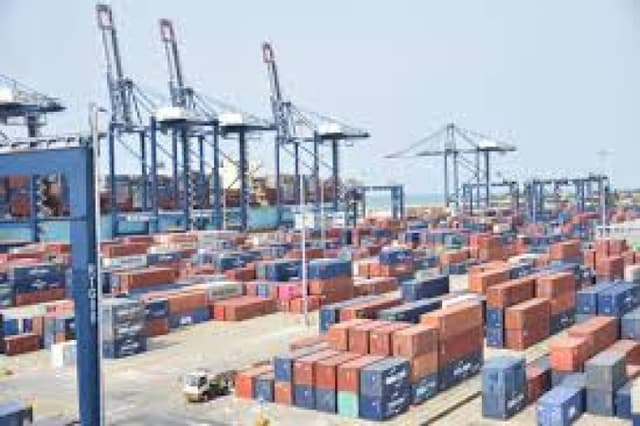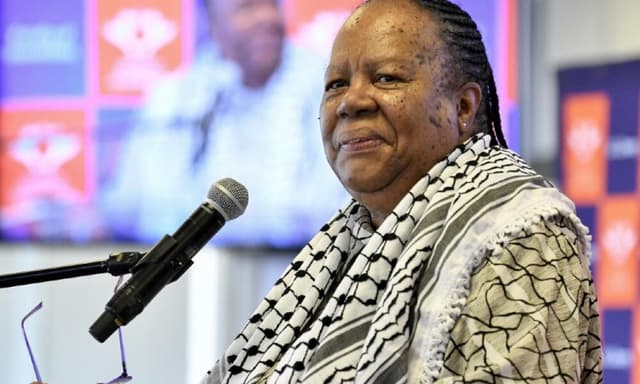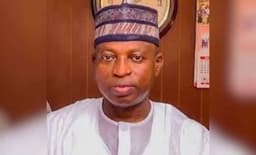
Inside a courtroom during a litigation
The escalating number of court cases involving Nigeria’s opposition parties is casting doubt on their prospects ahead of the 2027 general elections, as politicking has started earlier than both anticipated and permitted under the law, Weekend Trust reports.
These disputes have deepened internal divisions, threatening party cohesion and the broader democratic process.
The People’s Democratic Party (PDP), Nigeria’s main opposition since 2015, has been the hardest hit. A spate of overlapping and conflicting court judgements culminated in chaos at the party’s national secretariat on Tuesday, leaving many observers questioning the party’s capacity to remain competitive.
While some analysts suggest the PDP is on the path of stabilising after its national elective convention, held despite two court orders stopping it, concerns remain that the faction led by FCT Minister Nyesom Wike—dealt a setback by the convention which expelled them—may seek legal reprisal.
Three major cases have emerged around the PDP convention: two in the Federal High Court in Abuja and one in the Oyo State High Court in Ibadan. In Abuja, the faction opposing the convention, comprising loyalists of Wike and former Jigawa State Governor Sule Lamido, secured judgements stopping the convention, with one asserting Lamido was barred from purchasing the nomination form for the national chairmanship.
Meanwhile, the Oyo State High Court, in a suit brought by loyalists of Oyo State Governor Seyi Makinde, upheld the convention in procedural terms, though a substantive ruling is still pending. The Makinde-Bauchi faction successfully backed Kabiru Tanimu Turaki (SAN) as the new national chairman, with support from the Board of Trustees under former Senate President Adolphus Wabara.
Litigation hurdles in other opposition parties
The litigation pattern extends beyond the PDP. The Labour Party (LP), which finished third in the 2023 presidential election, has been embroiled in a protracted leadership struggle. Rival factions have used conflicting court judgements to assert legitimacy, even defying Supreme Court rulings meant to resolve the disputes. Analysts warn that this continued discord could undermine the party’s ability to organise primaries and field credible candidates for 2027.
The New Nigeria People’s Party (NNPP), fourth in 2023, faces similar turmoil. Multiple courts have recognised different factions, leaving party operations effectively paralysed.
The African Democratic Congress (ADC), now under the leadership of the coalition of opposition, also grapples with internal legal disputes. Former presidential candidate, Dumebi Kachikwu, challenged the coalition’s takeover of the party, with judgement still pending, highlighting the difficulties of maintaining party cohesion in coalition arrangements.
The Supreme Court earlier in the year delivered a judgement aimed at resolving internal disputes within both the PDP and the Labour Party, but their effects have been mixed. The apex court emphasised that internal party matters, including leadership contests, fall largely under party constitutions and are non-justiciable, except when fundamental human rights are affected. However, conflicting interpretations by lower courts have undermined this principle, with legal experts blaming this on the vagueness in the tone of the judgement.
Judicial and political implications
Senior lawyers and political scholars have expressed alarm over the proliferation of conflicting court orders destabilising opposition parties.
Nwoko Uwemedimo (SAN) said the situation is “alarming”, noting the Supreme Court and the Chief Justice of Nigeria have repeatedly warned that internal party matters are non-justiciable.
“The issues that these courts give conflicting judgements on are issues the Supreme Court has settled in over twenty cases. And on Monday, during the opening of the All Judges Conference in Abuja, the Chief Justice of Nigeria specifically told all the judges that the issues concerning internal affairs of political parties are non-justiciable. And no judge should meddle with it or accept jurisdiction to hear it,” he said.
He noted that despite the warning, some judges have continued to handle matters they ought to decline.
“When Justice Ogunwumiju was making her comments, she said the federal high court judges are unrepentant, in spite of all the warnings they have received,” he added.
He noted that petitions have been filed against judges involved, including Justice Abimbola of the Oyo State High Court and Justices Omotosho and Lifu of the Federal High Court, which are pending before the National Judicial Council (NJC).
Uwemedimo criticised politicians for influencing judges, and he accused President Tinubu of failing to protect judicial integrity.
“It was a comedy for Tinubu to get up and say justice should not be for sale. The truth is that the federal government is completely determined to ensure that there is no coalition party in 2027,” he said, adding that the fear of a united opposition is behind the countrywide crisis rocking political parties.
Uwemedimo said the involvement of state machinery in internal conflicts is evident.
“If you go to the PDP secretariat in Akwa Ibom State, two armoured tanks are guarding it with six police vehicles. The armoured tanks that would have been used to pursue bandits are standing watch, guarding the PDP secretariat,” he added.
However, another senior lawyer, Salman Jawondo (SAN), said many party crises arise from selfish ambitions and lack of discipline.
“Party supremacy is dead in Nigeria. The only party that still has it is APC because it is in government. Otherwise, they would do the same if in opposition,” he said.
Jawondo said the judiciary has also failed to stamp out abuse.
“There has been no decisive action on judges that engage in matters where they do not have jurisdiction. The National Judicial Council has not properly disciplined them. There are sacred cows,” he noted.
He said the federal high court lacks jurisdiction over party congresses, and as long as some groups are smart enough to use the court, what tells you the other group will not even be smarter?
He said even if the ruling party attempts to influence crises, disciplined members should resist. “If you are truly a good member of the party, you will not allow yourself to be used to destroy it.”
On the election of 2027, the senior lawyer said, “Whether you like it or not, parties will field candidates. Before then, all these cases will have been resolved by the higher court. And whatever the resolution made by the higher court will now be the guiding principle on which faction of the party INEC will relate with.”
Speaking specifically to the PDP conundrum, Jawondo said, “Some people have said that because INEC was not present at the PDP convention, it is void. That is not the case. What the law says is that the party must give INEC 21 days’ notice. It is left for INEC to decide whether to attend or not, but the absence of INEC does not affect the validity of the convention.”
‘Ignoring party constitution fuels litigation’
On his part, Prof. Hassan Saliu, President of the Nigeria Political Science Association, stressed that ignoring party constitutions fuels litigation.
“The practice of democracy in third-world nations is conflictual. People put a lot of ambition into politics. When ambitions are not realised, they resort to litigation. Each party has its constitution, but leaders do not adhere to it. Party internal matters then become difficult to defend,” he said.
He further noted the risk for the 2027 elections: “If these crises persist, parties may not have candidates. Who will INEC recognise when two factions claim legitimacy? It happened in Zamfara before. Politicians must take responsibility; no one else will run their party for them. If this continues, it may be a walkover for the ruling party.”
He dismissed claims that the president is responsible for all the crises. “This crisis started before Tinubu became president. Was he the one that encouraged the formation of the G-5? Politicians must take responsibility; no other person will run the party for them. If they continue like this, it may be a walkover for one of the parties.”
According to him, the solution lies in returning to party rules. “If we believe in democracy, we must start with the supremacy of party structures and party regulations.”
Taiye Oniyide (SAN) blamed litigation on power struggles and selfish interests: “The basis for this incessant litigation is permutations and power struggles. It is not about the common man; it is about individual interests of politicians. Conflicting judgements are sometimes misunderstood. Not all situations are truly conflicting; there are already sufficient rulings covering almost every ground unless novel issues arise.”
Using the PDP disputes as an example, Oniyide said, “The issues before the Abuja court and the Ibadan court may look similar but are not necessarily the same. The prayers and circumstances differ. However, if identical matters come before courts of the same level, the first in time must prevail. Anything else is wrong. Both judges and lawyers must be diligent; technology now allows databases of cases, but you still need judges ready to do their work and lawyers who do theirs.”
However, another political analyst, Dr. Mohammad Alada, attributed the crisis to the judiciary’s politicisation.
He said, “The judiciary itself has been politicised. Judges are giving political judgements, making it difficult for others in the judiciary to interpret or obey such orders. Opposition parties, if serious, must pursue matters legally, even requesting the Supreme Court to revise a judgement if necessary. Reform is urgently needed.”
He warned of the broader consequences.
“Politicians must understand that if this country disintegrates, they disintegrate with it. They must stop playing divisive politics and look for ways of advancing the country. Who will initiate reform of the judiciary? Yet, without reform, these crises will persist, weakening opposition parties ahead of the 2027 elections.” (Daily Trust)



























NEWS EXPRESS is Nigeria’s leading online newspaper. Published by Africa’s international award-winning journalist, Mr. Isaac Umunna, NEWS EXPRESS is Nigeria’s first truly professional online daily newspaper. It is published from Lagos, Nigeria’s economic and media hub, and has a provision for occasional special print editions. Thanks to our vast network of sources and dedicated team of professional journalists and contributors spread across Nigeria and overseas, NEWS EXPRESS has become synonymous with newsbreaks and exclusive stories from around the world.